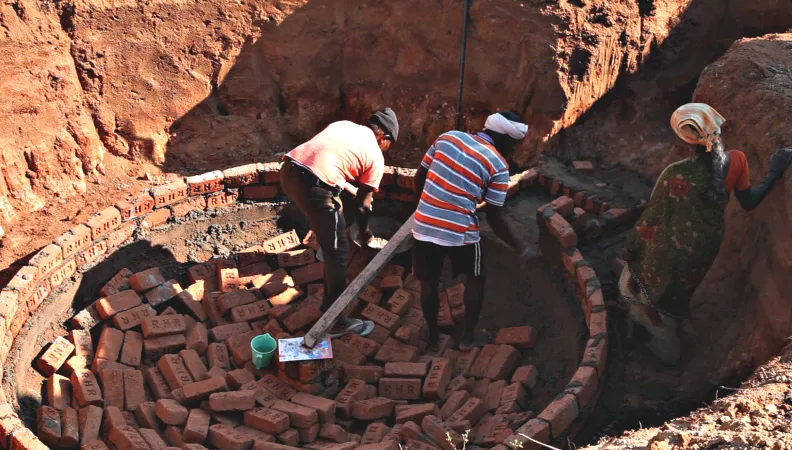Share the page
Biogas reservoirs to mitigate greenhouse gas emissions in Karnataka
Project


-
Project start date
-
Status
Completed
-
Project end date
-
-
Project duration
-
2 years
-
AFD financing amount
-
€ 500000
-
Country and region
-
Location
-
Sidlaghatta
-
Type of financing
-
Beneficiaries
-
Good Planet Foundation
AFD assisted the NGO GoodPlanet, as well as a local NGO, in the development of an innovative approach to financing access to energy for disadvantaged rural families.
Context
Most families in India’s rural regions currently rely on wood to cook their food. The use of wood as an energy source has negative impacts on the living conditions of the population, especially women (wood chore, domestic pollution with an impact on health). In addition, this wood comes from forests which are not renewed, leading to a negative contribution to the protection of the climate.
43% of India’s 75 million family farms have more than four heads of livestock, a threshold at which a biodigester can produce the quantity of gas required to meet the energy needs to cook the food of an average family. Thanks to the strategy of the National Project on Biogas Development, some 4 million biodigesters have been installed in India since 1981. The development potential is estimated at 700,000 new installations in the State of Karnataka alone.
Description
In 2008, GoodPlanet and the Indian NGO SKG Sangha, which has decades of experience in this field, launched a partnership to develop the installation of biogas reservoirs for rural families in the State of Karnataka.
Thanks to a EUR 500,000 soft loan from AFD to GoodPlanet in 2009, reallocated as a grant to SKG Sangha, the project has built some 2,000 biodigesters in 2 years in the district of Sidlaghatta (total investment amount of EUR 1.5m).
The loan repayment, which started in late 2011, is made with the proceeds from the sale of CO2 emission reduction certificates (carbon credits). These reductions were indeed observed in 2012 by the independent auditor from TUV NORD Cert and the Program of Activities received the Gold Standard certification from the Clean Development Mechanism (CDM) in January 2013.
Impacts
- Strong social impact on beneficiary families: the biodigester provides a free, reliable and low-carbon energy source. The time freed up for women, due to the fact that there is no longer the chore of collecting wood, can be used for activities with higher socioeconomic added value. Finally, the reduction in domestic pollution, which came from the smoke when wood was burned, improves people’s health;
- Beneficial environmental impact: reduction of deforestation and greenhouse gas emissions: stopping wood consumption to heat food reduces emissions by approximately 5 t CO2 per family per year, i.e. by some 500,000 t CO2 for the entire project.


